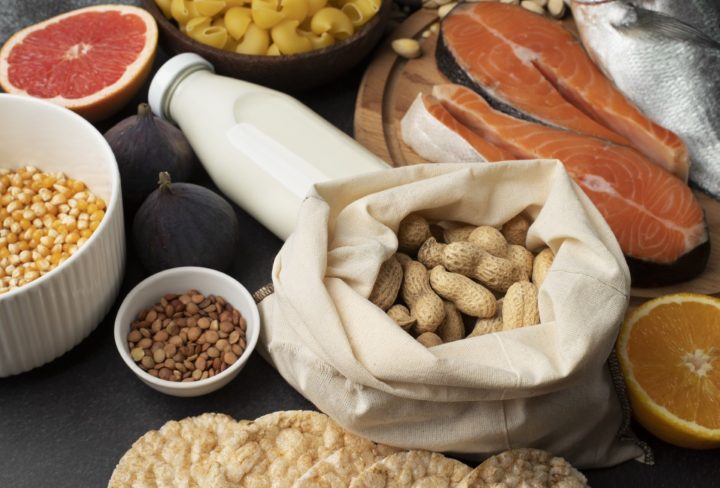Maintaining strong and healthy bones is essential for overall well-being, especially as we age.
The Importance of Bone Health
- Understanding the role of bones in the body: Structure, support, and protection
- Consequences of poor bone health: Osteoporosis, fractures, and decreased mobility
Nutrients Essential for Bone Health
- Calcium: Building block of bones, crucial for bone density and strength
- Vitamin D: Facilitates calcium absorption and regulates bone metabolismVitamin K: Helps maintain bone density and reduce fracture riskMagnesium: Supports bone structure and mineralization
- Phosphorus: Works with calcium to strengthen bones
Top Foods for Bone Health
- Dairy products: Milk, yogurt, and cheese are rich sources of calcium and vitamin D
- Leafy greens: Kale, spinach, and collard greens provide calcium, vitamin K, and magnesiumFatty fish: Salmon, sardines, and mackerel are excellent sources of vitamin D and omega-3 fatty acidsFortified foods: Fortified cereals, orange juice, and plant-based milk alternatives contain added calcium and vitamin D
- Nuts and seeds: Almonds, sesame seeds, and chia seeds offer magnesium, phosphorus, and other bone-boosting nutrients
Bone-Building Recipes
- Creamy spinach and kale smoothie: Blend spinach, kale, Greek yogurt, banana, and almond milk for a calcium-rich breakfast or snack
- Baked salmon with sesame seeds: Coat salmon fillets with sesame seeds and bake until flaky for a delicious dose of omega-3s and vitamin D
- Calcium-rich yogurt parfait: Layer Greek yogurt with granola, berries, and a drizzle of honey for a nutritious and bone-friendly dessert
Lifestyle Factors for Strong Bones
- Regular exercise: Weight-bearing and resistance exercises promote bone strength and density
- Limiting alcohol and caffeine: Excessive consumption can interfere with calcium absorption and bone health
- Quitting smoking: Smoking is linked to decreased bone density and increased fracture risk
Supplements for Bone Health
- Calcium and vitamin D supplements: Considered for individuals who may not get enough from diet alone, especially older adults and those with certain medical conditions
- Consultation with a doctor: Recommendations for supplementation should be tailored to individual needs and health status
Prioritizing bone health through nutrition and lifestyle choices is crucial for maintaining strong and resilient bones throughout life.
By incorporating bone-boosting foods into your diet, staying physically active, and making other healthy choices, you can support your bones and reduce the risk of osteoporosis and fractures in the long term.

